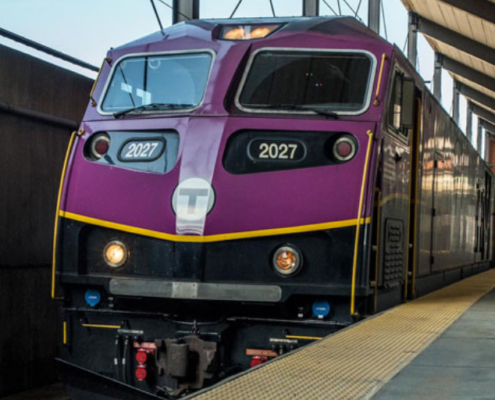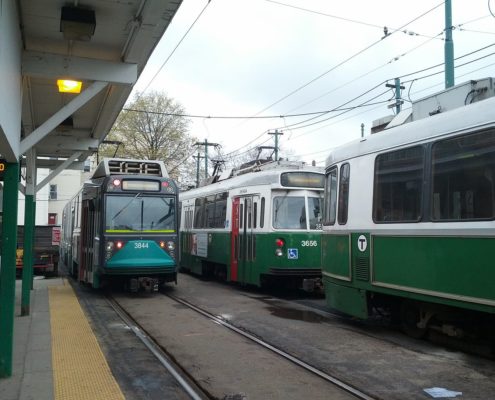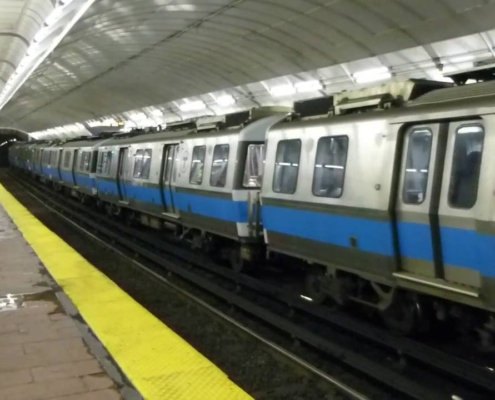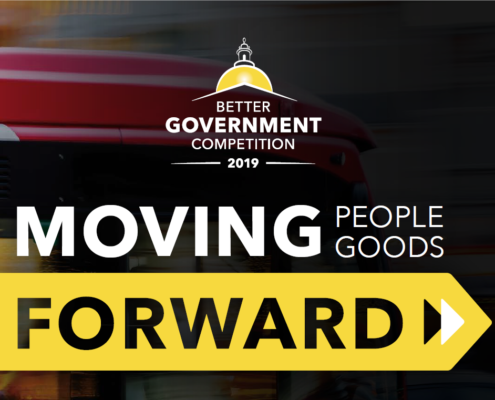Pioneer Institute to Recognize Winners of 29th Annual Better Government Awards at Gala
Speakers to include National Transportation Safety Board Vice Chair Bruce Landsberg and Massachusetts Governor Charlie Baker
BOSTON – Innovative programs that prepare America for the future of transportation, ensure public safety, reduce traffic congestion, and achieve a cleaner environment will be highlighted at Pioneer Institute’s 29th annual Better Government Competition Awards Gala on Monday, September 16th at the Hyatt Regency Boston. Massachusetts Governor Charlie Baker will provide opening remarks and Bruce Landsberg, vice chair of the National Transportation Safety Board, will deliver the keynote.
Vice Chair Landsberg was appointed in 2018, after holding leadership positions with the Aircraft Owners and Pilots Association Foundation, which received international recognition and numerous awards for promoting light aircraft safety. He has also worked for Cessna, Flying magazine, and Flight Safety International. He served in the U.S. Air Force, and is a Fellow of the Royal Aeronautical Society.
Governor Baker’s administration is overseeing a major overhaul of the MBTA, investing billions in long overdue infrastructure upgrades, and implementing reforms to operations and finances. The Governor’s commission to study traffic congestion in Massachusetts recently released proposals for future investments in the Commonwealth’s transportation system.
“Roadway congestion and a transit system in need of a Marshall Plan are having substantial impacts on people’s lives and business decisions,” said Pioneer Institute Executive Director Jim Stergios. “As a result, the public’s appetite for big change is growing. The Better Government Competition is the perfect vehicle to gather the best ideas from across the country and ideological spectrum. The Competition highlights new technologies and policies that will drive major improvements in transit and other modes of transportation, for people and for goods.”
Broken roadways and transit systems are negatively impacting our economy and quality of life, triggering substantive debates about the MBTA; roadway pricing, bus rapid transit and bike lanes; ridesharing; and autonomous vehicles. The ideas Pioneer’s 2019 Better Government Competition attracted address all these critical issues and more.
Proposals included innovative programs that invest in human capital and technology to prepare for imminent changes in the transportation industry, apply strategic logistical adjustments to existing infrastructure to maximize efficiency and increase public transit use, and boost awareness about pedestrian safety.
The winning entries will be announced at the September 16th Awards Gala. Tickets are on sale now. The contest attracted over 100 submissions from government agencies, academic institutions, non-profits, businesses, and individuals across the country, including several from Boston.
The top entry will receive a prize of $10,000, and four runners up will each receive $1,000. Five honorable mention submissions will also be recognized. The winning entries were selected by the following transportation experts:
- Adam Portnoy, President and CEO, The RMR Group
- Frederick Salvucci, Senior Lecturer, MIT Transit Lab
- Stephen J. Silveira, Senior Vice President, ML Strategies
- Mary Skelton Roberts, Co-Director for Climate, Barr Foundation
- Adam Vaccaro, Transportation Reporter, The Boston Globe
At the Better Government Competition Awards Gala, a compendium of winning entries will be distributed to attendees; Pioneer will also send it to policy makers and opinion leaders in Massachusetts and across the country. Tickets for the Awards Gala are on sale, and sponsorship opportunities are available.
Pioneer Institute’s Better Government Competition, founded in 1991, is an annual contest that rewards some of the nation’s most innovative public policy proposals. The Better Government Competition Awards Gala attracts hundreds of leaders in business, government, and the non-profit sector. Past speakers have included: The Right Honorable James D. Bolger, New Zealand Ambassador to the United States; John Stossel, former ABC News correspondent; U.S. Senator Alan Simpson; Massachusetts Governors Mitt Romney, William Weld, Paul Cellucci, Deval Patrick, and Charlie Baker; David Gergen, advisor to four presidents; Michelle Rhee, head of StudentsFirst; U.S. Senator Scott Brown; financial publisher Steve Forbes; Boston Mayor Martin Walsh; former Boston Police Commissioner Edward Davis; Joseph F. Coughlin, Founder and Director of the MIT AgeLab; and John Sexton, former President of New York University.
###
Pioneer Institute is an independent, non-partisan, privately funded research organization that seeks to improve the quality of life in Massachusetts through civic discourse and intellectually rigorous, data-driven public policy solutions based on free market principles, individual liberty and responsibility, and the ideal of effective, limited and accountable government.
Related Posts

















